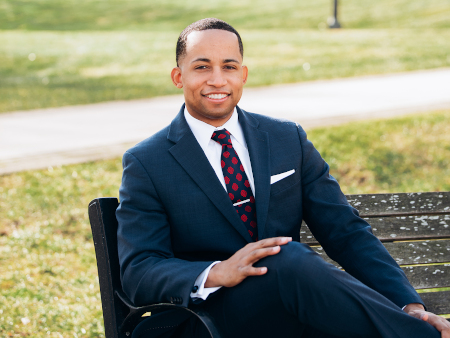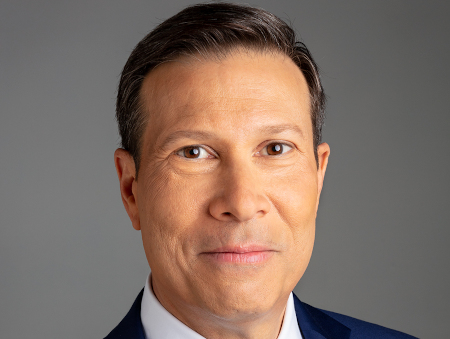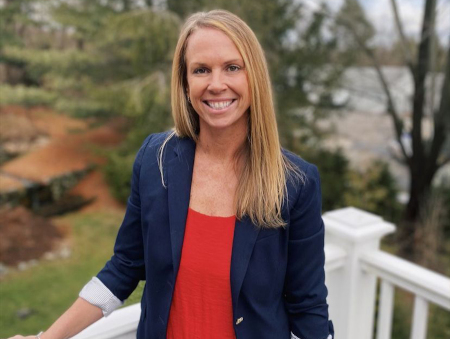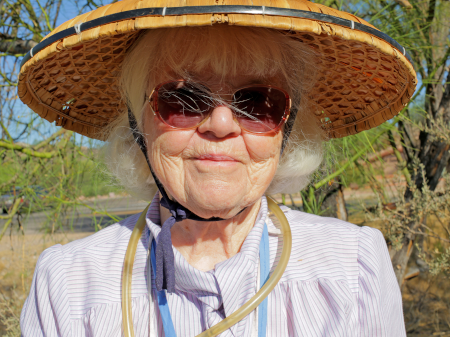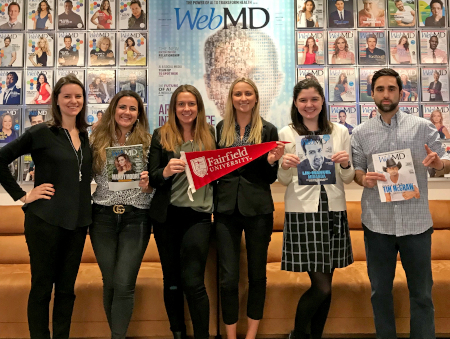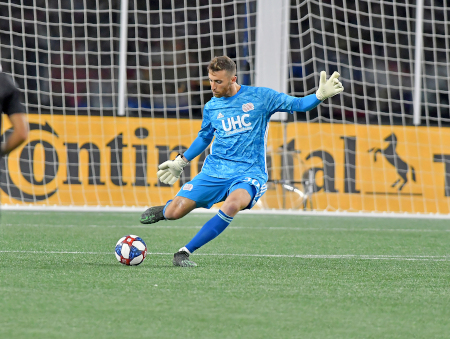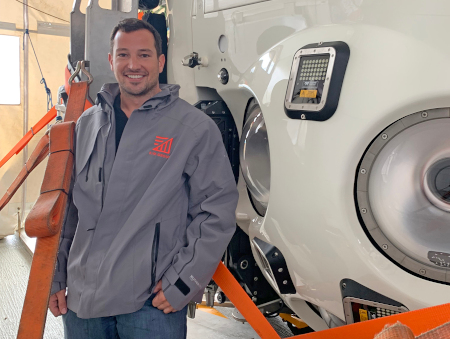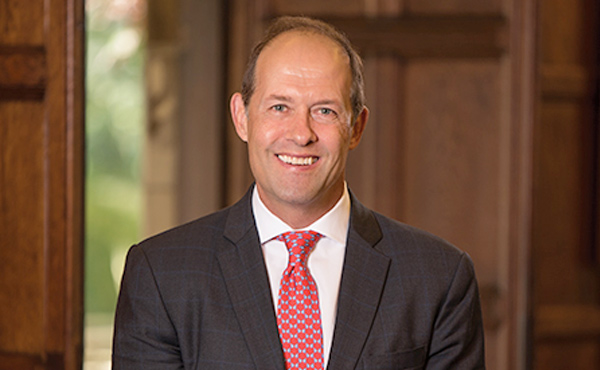Director of Student Diversity and Multicultural Affairs Pejay Lucky is building community.
“So from this, my true hope is that we’re able to embrace each other and support each other in a greater way. To me, diversity work is the same work as what Jesuits do: it’s men and women for others.”
— Pejay Lucky, Director of Student Diversity and Multicultural Affairs
Character. Integrity. Loyalty. These were the principles instilled within Fairfield’s Director of Student Diversity and Multicultural Affairs Pejay Lucky as a young adult attending Triumphant Christian Church in Bridgeport, Connecticut — the values he has exemplified and expressed in his nearly seven-year career at Fairfield University.
His commitment to community became evident as a student at the University of Hartford, where he was involved in a host of co-curricular activities: from the Men of Color Alliance and Naciones Hispanicas Unidas, to the Caribbean American Student Association. He also served as a resident assistant and started his own Bible study group called Together With Christ.
Lucky later accepted an area coordinator position in the Residence Life office of Trinity College in Hartford, Conn., before finding a home six years later at Fairfield’s Office of Residence Life, as an associate director.
His personal values and the University’s core values have fallen into lockstep in his current role as the director of the Office of Student Diversity and Multicultural Affairs. Now, during a critical period, Lucky is a leader on campus, reaching out to students at a time of uncertainty, building networks, and fostering the unity that is so essential to Fairfield’s character as a Jesuit University.
The interview that follows has been edited for brevity and clarity.
What values and goals guide the way you lead at Fairfield?
I am highly involved in my church community in Bridgeport, which has really instilled my core values of character, integrity, and loyalty. For me, no matter what I do, I have to do it with character, integrity, and loyalty. And that’s infused with our Jesuit mission. When I think about loyalty especially, I think about “men and women for others” — loyalty not just to myself, but loyalty to my community.
I am truly big on servant leadership, and on thinking, “What can I do to help someone else? How can I serve?” It’s just been great to know that the Jesuit mission aligns with my personal values and my outlook on life.
As director of the Office of Student Diversity and Multicultural Affairs (SDMA), what other projects are you working on that you are excited about?
Academic Immersion, which is a summer program for underrepresented students to come [to campus] a month before school starts and take a class — or usually two. Students are usually on the ground here on campus, getting support from resident assistants, from tutors, from my entire staff. But this year, we had to go virtual, which was a huge pivot; still we worked to provide the same support to make sure that our students’ transition was smooth. Part of that transition was bringing in career planning, counseling, financial aid — different resources so that folks know what’s going on.
This semester, we’ve done a lot of work with Fairfield’s Counseling and Psychological Services Center, really looking to make [addressing] mental health [issues] a normal thing in the community of people of color, where it was very stigmatized in the past.
Another thing I’m excited to be working with Assistant Vice President Janet Canepa in Alumni Relations on is establishing an official organization for alumni of color to stay connected to the Fairfield University community through service, networking, and partnership.
Describe the ‘boots on the ground’ diversity work and multicultural services provided by the Office of SDMA.
The CARE Team [Community Advocate Relationship Educators] student leaders are part of the heart and soul of SDMA; I’m not sure folks know how much they do. About 10 of them have been in classrooms — virtual classrooms — hosting programs around social justice and diversity initiatives. They are a great group of students.
And the affinity clubs are usually booming; especially BSU [Black Student Union]. They’re usually a thriving club. Their leaders as well as their general body have been working to adjust [to Covid-19].
We had our first Diversity, Equity, and Inclusion Book Club last semester with staff. We read the book How to Be an Antiracist by Dr. Ibram Kendi. There were about 40 people that were a part of this book club within the Student Affairs division. We asked this question — I ask this question a lot — specifically to people of different [backgrounds]: “When was the last time you’ve intentionally put yourself in a space with people that were different than you?”
I truly wonder: when is the last time that people have gone out of their way to be around someone that’s different. And I wouldn’t just ask this question without doing it myself. I’ve done it. I do it all the time! [laughs]
How does the Office of SDMA intersect with the President’s Working Group on Inclusive Excellence?
I am a member of the President’s Working Group on Inclusive Excellence, and I lead a committee on recruitment and retention. We are intersecting in so many ways through the programs and initiatives we support. The working group has leaders from all across campus, and collaborates on diversity initiatives within our Admission Department, Fairfield Prep, Alumni Relations, and much more.
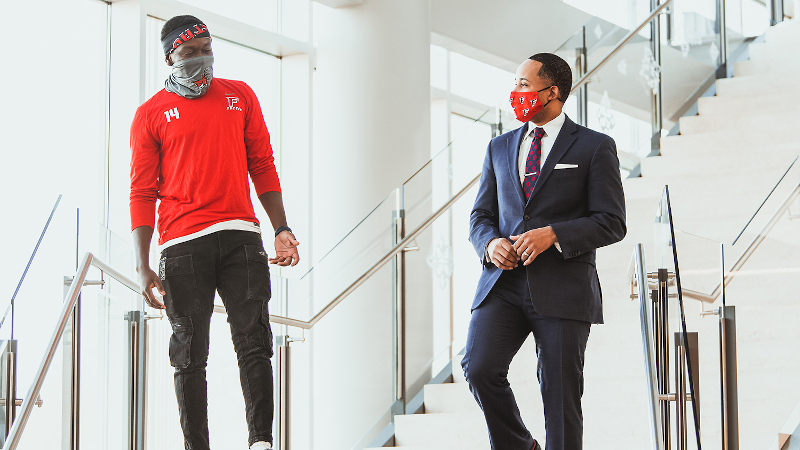
Pejay Lucky (right) catches up with Mahfouz Soumare ’22 on the steps of The Tully in the Barone Campus Center.
President Nemec and the working group chairs [Associate Vice Provost for Scholarly, Creative, and Community Engagement Jocelyn Boryczka, PhD and Vice President for Student Life Karen Donoghue] have been more than supportive when it comes to ensuring that our mission as a working group intersects with all of our divisions within the University community. I believe it’s not one department’s responsibility to embody inclusive excellence, but it takes all of us to ensure we are enhancing the University, and I’m grateful for how we as a community have been working together to be progressive.
You’ve also helped lead the campus community through the Covid-19 pandemic. How has it influenced your leadership style?
What I’ve learned from our Jesuit mission is that you have to be flexible, and you never know what you may experience and when it may hit. Jesuit universities were specifically placed near inner cities to support those communities. [The Jesuits] didn’t know what experiences they would face when they went there. We had Jesuits putting themselves in some interesting and unfamiliar situations. So when it comes to shaping leadership, again, I talk about embracing the unknown — that’s true diversity.
When it comes to my leadership style — with having a heart for people and wanting to serve — I see that we just can’t stop, specifically for some of our people that are on the margins, if everything is remote.
Usually my office is packed with people. I mean, there’s easily 40 students at a time in there when you walk through the Student Diversity office. Going remote, where we could only limit the office to 15 people at a time, was a big difference. So we said, “OK, we’ve still got to have checkpoints for people.”
And these checkpoints are so pivotal because so many of our students that are on the margins are first-generation college students that just don’t know what resources are there. So we said, “Let’s get on Zoom! Let’s get on social media; let’s flood it! Let’s flood social media as much as possible with flyers and cool videos.”
What we were actually doing last spring semester when things were really locked down was what we called “Live at Five” from Monday through Thursday, where someone from my office would go on social media, talk about what we were doing, have an inspirational quote of the day, and encourage our students to hop on and get the resources they need through the campus partners we brought on, like Counseling [and Psychological Services].
So, long story short: I’ll say what enhanced my leadership style is being flexible and adaptable in the unknown. And I think that just goes with the work that we do.
How have you and your team continued to respond to racial justice issues that made headlines in 2020?
We’ve held several different programs. For example, our CARE Team leaders held programs that were specifically in the style called “civic reflection.” We’ve held multiple reflections, one in particular on Breonna Taylor [a Black medical worker who was shot and killed by Louisville police officers in March of 2020].
The CARE Team has also helped out in classrooms, where they’ve gone in and held different civic reflections. What we did was show either an article, a picture, or a clip of a video — start with that — and then host different break- out sessions and breakout rooms based around those things. We’re very aware that sometimes students may not have the space to process, depending on their household. You just never know. So we just want to make sure we’re continuing to engage in those conversations.
Have these virtual dialogues been helpful?
Definitely. I think about the Breonna Taylor program that we held in October, and the great thing about it was that we also made it an FYE [First-Year Experience] credit, so some first-year students that really didn’t even know the details of the story came and learned about what happened. We shared different articles and video clips, and students came and learned. The majority of the students that attended were students who aren’t exposed to some of the challenges that others face.
For George Floyd, [an African American man killed during an arrest in Minneapolis in May of 2020] that was a summer one, a pop-up: “Hey, let’s hop on.” We just opened the floor up. We held a group meeting for a lot of students that we connect with, as well as emailed out [to]. Students showed up.
We also did a program on antiracism after the election results [in November]. We just talked through what it means to be an antiracist leader, and even talked about the administration that’s leaving us, as well as the administration that’s coming in. We talked about how it looks to be an antiracist leader, and a lot of the anti-racist language we used, we took from Kendi’s book.
Even on election night, we actually hosted an open Zoom room; we partnered with Residence Life, and students popped in and just wanted to talk. In our open [virtual] space, students checked in, told us what was going on, and talked through some of the updates. I really just wanted to make sure that we were able to engage, even remotely, because we couldn’t be in-person.
From all of these initiatives and projects, what do you hope is the message or lesson that comes across for the campus community?
That’s a great question. I hope that people are informed and educated on others and them- selves. And let me even rephrase that — I hope we are transformed when it comes to our thinking, with how we’ve been socialized as people to think a certain kind of way. So many times, until we’re able to acknowledge our biases and our ignorance, we’re not able to embrace the different.
So from this, my true hope is that we’re able to embrace each other and support each other in a greater way. To me, diversity work is the same work as what Jesuits do: it’s men and women for others. It starts when someone walks in the room: Did you say hello? Did you get to know them before judging how they look? Did you even say hello? [laughs]
My hope is that with these initiatives, we can set the world aflame through the lens of social justice, with that lens on so that we’re able to see past our own experiences. My hope is that we are able to walk with those in the margins after this and look at what we can learn from them, what they can learn from us, and how we can support each other.
One day, when you look back on your career, what would be the one thing you hope to say you achieved?
That’s actually an easy question [laughs]. Because when I think about why I do the work that I do, my hope is that when I look back, I can see how many lives I helped. I truly believe that this work is life-changing. So my hope, as I look back, is to see that all I’ve learned I was able to pour into somebody else and enhance their life.
